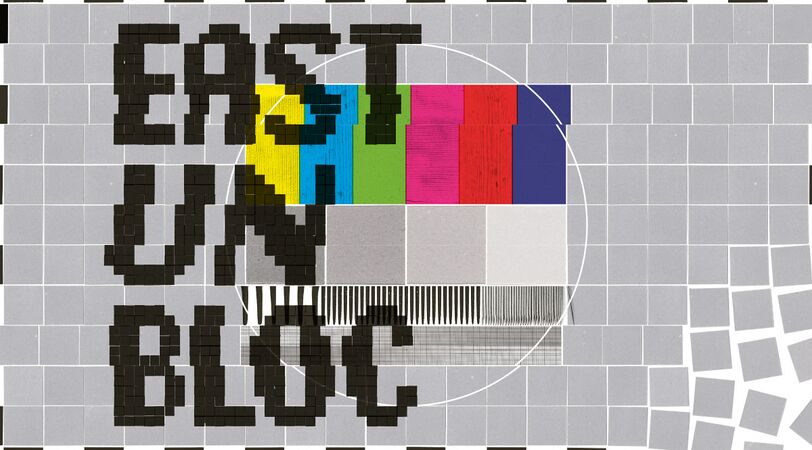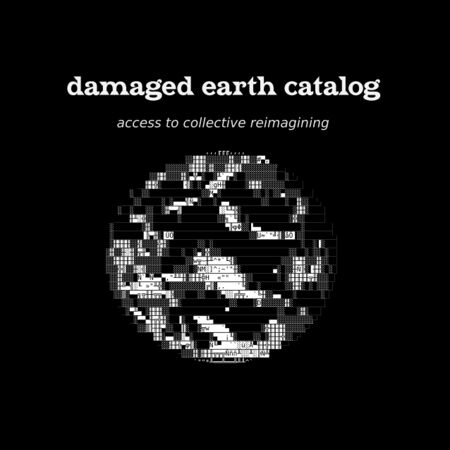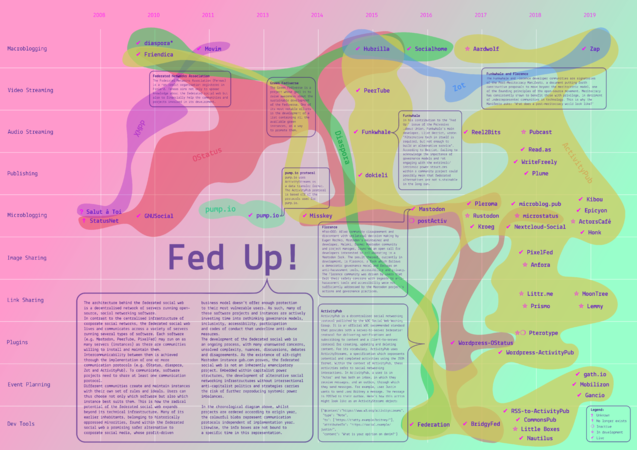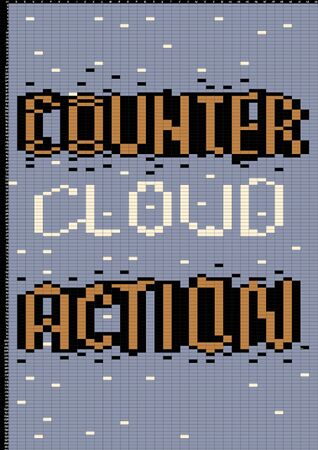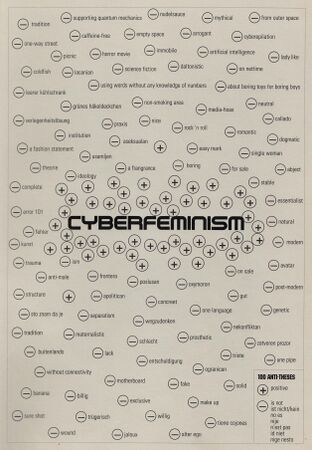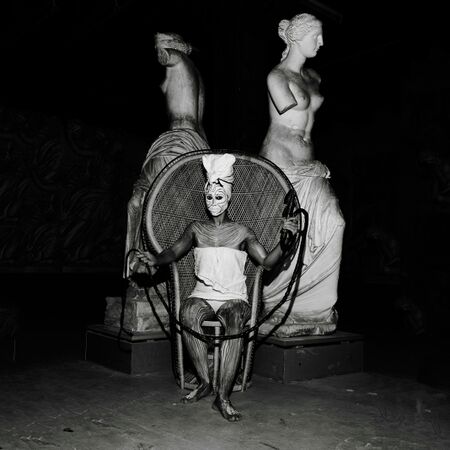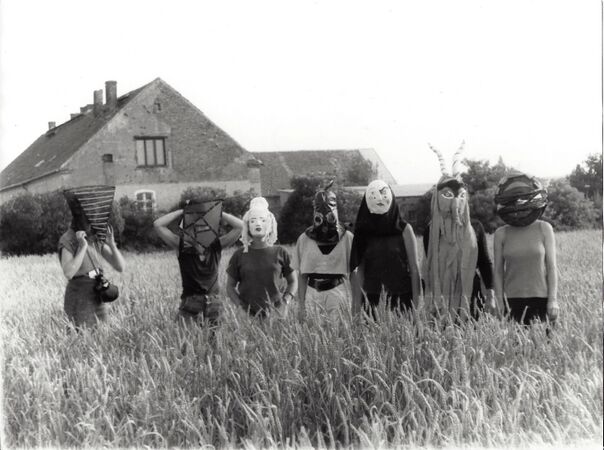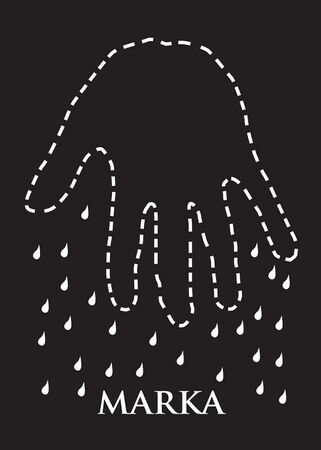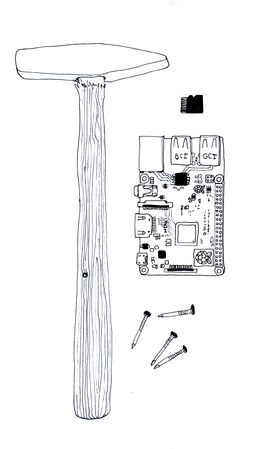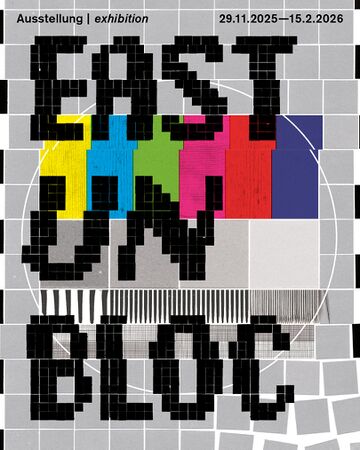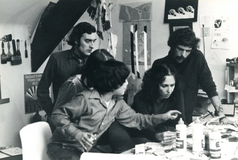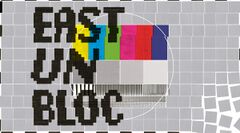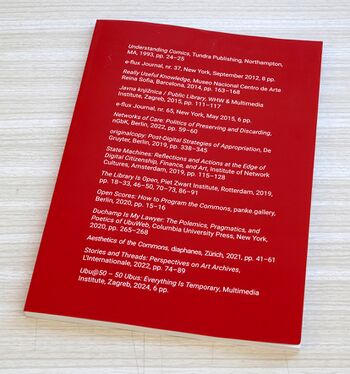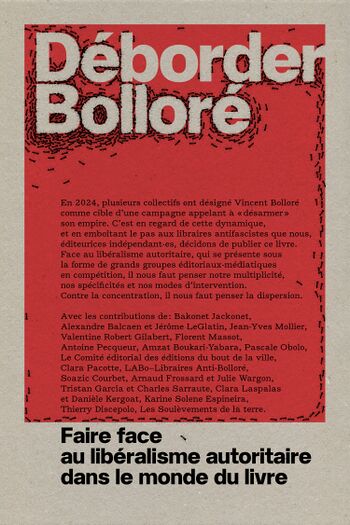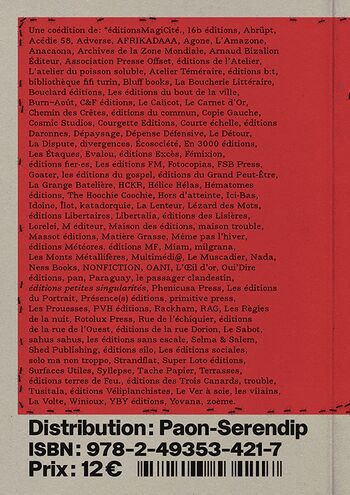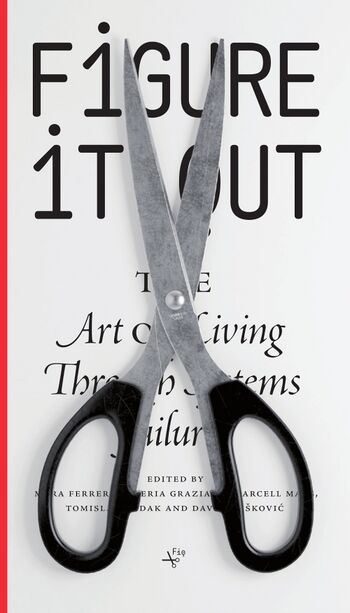Monoskop
Welcome to Monoskop, a wiki for arts and studies.
December 2025
Bangkok
Bangkok Art Book Fair 2025, with 126 exhibitors from 25 countries, Bangkok Art and Culture Centre, 5–7 December.
Berlin
The exhibition Global Fascisms critically examines the aesthetic, social, and political dynamics of fascism, questioning its appeal and ideological mechanisms. A key aim is to understand fascism not only as a historical phenomenon, but also as an ongoing global threat that transcends its historically confined definition, manifesting in diverse political, cultural, and social contexts today. Focusing on the historical and contemporary contexts in which far-right ideologies thrive, the exhibition interrogates contested notions such as ‘identity’, ‘community’, and ‘belonging’. The exhibition brings together works by around fifty international artists who respond to the rise of fascist ideologies through a variety of media, including painting, film, performance, discourse, publications, and digital formats. HKW, 13 September–7 December 2025.
The Gaza Biennale Berlin Pavilion unfolds from 21 November–21 December 2025 with exhibitions at venues including Flutgraben, AGIT, Khan Aljanub and Museum Called Baby, with additional programme hosted at Galerie & Atelier Arabisk, Casino Café Clinic for Social Medicine, Spore Initiative and KM28 among others, as well as around the streets of Berlin. With a collaboratively curated public program, the Gaza Biennale Berlin Pavilion invites people of all ages and backgrounds to join in talks, workshops, screenings and other gatherings to practice listening, healing and mourning; share joy and sorrow; and cultivate a communal strength that will ultimately be the key to dismantling oppressive systems based on fragmentation and extractivism—structural relics that lie at the root of the occupation of Palestine and colonial violence worldwide. Website.
EastUnBloc presents subversive, experimental and innovative media art works and practices from socialist and transition-era Central and Eastern Europe and their contexts. Exhibition, performances, talks, workshops. nGbK, Berlin, Sat, 29.11.25 – Sun, 15.2.26. Workshop: Entropy Coding: Experiments with Video and Permacomputing, 2.12.25, 2.00–6.00 pm.
Bochum
Workshop: Technofeministische (Re)Produktionsweisen, Kunstgeschichtliches Institut, Ruhr-Universität Bochum, 11.-12.12.2025. Since the 1970s, artists have undermined the paradigm of productivity and the dichotomy between production and reproduction by highlighting the interplay of corporeality and technology. This contradicts the strict distinction between productive factory work and unproductive care work. The workshop will examine technofeminist production and reproduction practices, and discuss how modes of production can be reinterpreted or reshaped in technofeminist terms. The main idea we want to discuss is that technofeminist practices confront gendered ideas of production and techniques. [1]
Brno
Disk cannot be read is a notional expedition into the forgotten corners of analog and (pre-)digital technologies, carriers, and artistic experiments dating roughly from the early 1990s. Vasulka Kitchen Brno, 9.12 2025—8.2 2026. Toot.
Hamburg
Writing Future. Writing as part of artistic practice is currently very popular at art colleges, in the art world, and in art criticism. Writing plays an important role in both the conception and implementation of artistic works and is evident on stage, in film, in performances, and as part of installations and visual works. The public symposium and corresponding exhibition are dedicated to different ways of dealing with texts and writing practices in an art context. In the exchange between artists and authors, transitions and interferences in the writing and staging of a text become visible. In addition to the relationship between visual art and literature, five panel discussions will focus on other relationships, such as institutional, technological, and poet(ological) ones, all of which have implications for the possible futures of writing. ICAT - Institute for Contemporary Art & Transfer der HFBK Hamburg, 5.12.2025–25.1.2026. Symposium: 3.–5.12.2025.
The 39th Chaos Communication Congress (39C3) takes place in Hamburg on 27–30 Dec 2025, and is the 2025 edition of the annual four-day conference on technology, society and utopia organized by the Chaos Computer Club (CCC) and volunteers. Congress offers lectures and workshops and various events on a multitude of topics including (but not limited to) information technology and generally a critical-creative attitude towards technology and the discussion about the effects of technological advances on society. Assemblies.
Leipzig
Symposium: Costs of (Dis)Connecting, HGB & HALLE 14, 04.-05.12.2025. Digital connections have long been sold to us as an unalloyed good: seamless, frictionless, universal. Yet the infrastructures that knit us together are also infrastructures of extraction, dispossession, and psychic attrition. To connect is to pay—with attention, with intimacy, with the disassembly of common worlds. To disconnect is likewise costly, casting individuals into isolation, precarity, or invisibility. In this symposium, we ask: what are the costs of (dis)connecting in the digital present? How do platforms, feeds, and models organize not only what is seen but also what can be imagined? And how might artists, theorists, curators, gallerists and mediators invent gestures of resistance, refusal, or subversion in the face of these algorithmic orders? Part of the (Un)Learning Digitalities program.
New York
Pioneer Works' sixth edition of Press Play, a weekend-long fair of books, records, art, ephemera, talks, and workshops, returns on December 13–14, 2025. Showcasing over 130 artists, musicians, poets, writers, and exhibitors who defy categorization, Press Play invites you to discover new ways of reading, listening, creating, and complaining about culture. This year’s program confronts the complexities of desire, from sadomasochism and online subcultures to loneliness, sex, and what it means to connect today. What happens when bodies and desires collide with technology and communion? How do we transform intimacy into art? In this new hellscape, what radical actions are possible? All talks are open to the public with admission and will be livestreamed on Montez Press Radio.
Nîmes
PUBLICARE édition zéro. Festival du multiple, de l’édition d’artiste et de la microédition, coordonné par Carré d’Art – Musée d’art contemporain, en partenariat avec le réseau des bibliothèques de Nîmes et l’école supérieure des Beaux-arts de Nîmes. 11, 12 & 13 décembre 2025.
Olomouc
Pinocchio Paradox. PAF Olomouc. 24th Festival of Film Animation and Contemporary Art, 4.-7.12 2025.
Tokyo
Tokyo Art Book Fair. Week 1: Dec 11—14. Week 2: Dec 19—21.
Recent files
Beau Geste Press.webp 1,280 × 860; 118 KB
Nika Sandler The Ancient Depths .jpg 1,368 × 2,000; 2.03 MB
Nika Sandler The Black Sun .jpg 1,126 × 2,000; 993 KB
Nika Sandler Plant and Human Pain .jpg 1,500 × 2,000; 1.39 MB
Nika Sandler Mycophilia .jpg 1,500 × 2,000; 1.28 MB
Nika Sandler A History of Teeth .jpg 2,000 × 1,500; 2.23 MB
Nika Sandler My Nonhuman Friends.jpg 1,499 × 2,000; 1.01 MB
Nika Sandler The World of Hedonia .jpg 1,500 × 2,000; 1.64 MB
EastUnBloc 2025 9.jpg 1,452 × 2,000; 874 KB
EastUnBloc header 2.jpg 1,200 × 665; 493 KB
Bonfire logo.png 851 × 1,068; 138 KB
Pan.rent.png 1,200 × 630; 921 KB
Recent edits
Recent pages
Log2
File:Careful A Repertorium on Shadow Library Practice 2025.pdf
Published on the occasion of Careful vs Careless: Library Custodians and Artificial Readers and Library Making as Practice at distro, Basel, 5–17 November 2025. With the Library of Inclusions and Omissions, Monoskop, The Piracy Project, Public Library / Memory of the World, a.o. Organised by Lucie Kolb and Maria Maddalena Lenzi.
"Large Language Models have, in a sense, created the ultimate (un)ideal readers for electronic libraries. By treating e-libraries as vast training datasets, algorithmic scraping has become both the fulfilment and the ruin of a core dream in public library culture: that access to books should be free and unlimited for all. AI systems read everything and nothing, at inhuman scale and speed — extracting patterns and selling what they pretend to know as consequence. What once symbolised a democratic promise now risks feeding extractive logics that empty reading of meaning.
So, why should we care — and if we do, how can we put that care into practice?
The ‘Careful VS Careless’ exhibition centres a new conversation between custodians of radical public libraries, known as ‘shadow libraries’. Organised around that conversation are a mixture of symbolic and tactical gestures that help people to think and act carefully in relation to the infrastructures of public knowledge systems."
Compiled by Dušan Barok, Marcell Mars, Tomislav Medak, Nick Thurston
Careful: A Repertorium on Shadow Library Practice distro, Basel, November 2025 [134] pages PDF (22 mb)
2025-11-5
File:Vertical Atlas 2022.pdf
"How to navigate the rapidly changing digital geopolitics of the world today? How do we make sense of digital transformation and its many social, political, cultural, and environmental implications at different locations around the world?
Vertical Atlas brings together the insights of a diverse group of internationally renowned artists, scientists and technologists from different backgrounds and places. From an investigation into the lithium mines in the Democratic Republic of Congo to maps of the fiber-optic submarine cables in the Atlantic and the ride-hailing platforms of China.
Vertical Atlas is not a classic atlas that depicts the world in a uniform manner and it is not a simple collection of traditional maps. This book is a tool that enables comparisons, connections and contradictions between different and diverse visions, realities and worlds – through newly commissioned diagrams, interviews, essays and works of art by leading experts from around the world."
Contributions by: Sophia Al Maria, Heba Y. Amin, Lotte Arndt, Benjamin H. Bratton, Kévin Bray, James Bridle, Ingrid Burrington, Adriana Bustos, Ben Cerveny, Guo Cheng, Chimurenga, Cristina Cochior, Sounak Das, Data Justice Lab (Philippa Metcalfe, Fieke Jansen), Pablo DeSoto, Alex Destoop, Marjolijn Dijkman, DISNOVATION.ORG, Maarten Vanden Eynde, Cao Fei, Shuang Lu Frost, Maya Indira Ganesh, Pélagie Gbaguidi, GCC Group, Geocinema (Asia Baz Qudyrieva, Solveig Suess), John Gerrard, Oulimata Gueye, Camille Henrot, Femke Herregraven, Yuk Hui, Sanneke Huisman, Victoria Ivanova, Vladan Joler, Isaac Kariuki, Francois, Knoetze, Srinivas Kodali, Bogna Konior, Lukáš Likavčan, Abu Bakarr Mansaray, Svitlana Matviyenko, Emo de Medeiros, Metahaven, Dorine Mokha, Jean Katambayi Mukendi, Edmond Musasa, Leu N’seya, Katja Novitskova, Trevor Paglen, Alice Piva, Chen 'Stanley' Qiufan, Nii Quaynor, Elia Rediger, Tabita Rezaire, Lucas Rolim, Bassem Saad, Nanjira Sambuli, Georges Senga, Nzilani Simu, Andrej Škufca, Ksenia Tatarchenko, Suzanne Treister, Unknown Fields, Jordi Vallverdú, Richard Vijgen, Sarah Waiswa, Zhan Wang, Kedolwa Waziri, Mi You, Qiu Zhijie, Dan Zhu.
Edited by Leonardo Dellanoce, Amal Khalaf, Klaas Kuitenbrouwer, Nanjala Nyabola, Renée Roukens, Arthur Steiner, Mi You
Vertical Atlas Publisher ArtEZ Press, Arnhem, and Hivos, 2022 ISBN 9789491444692 357 pages PDF (65 mb)
2025-11-3
File:Deborder Bollore 2025.epub
"Une publication multiformat coéditée par plus d’une centaine d’éditeurices indépendant·es, disponible à la vente en librairie et en libre diffusion sur deborderbollore.fr aux formats web, EPUB et PDF.
Dans le contexte de la campagne Désarmons Bolloré, et en emboîtant le pas au boycott appelé par les « libraires antifascistes », nous, éditeurices indépendant·es, coéditons collectivement cette publication multiformat pour prendre part depuis notre secteur à la réflexion générale sur le démantèlement de l’empire Bolloré.
Les contributions mettent en avant la pensée de chercheureuses, d’imprimeureuses, d’éditeurices et de libraires qui analysent et/ou subissent les dynamiques de concentration et d’extrême droitisation du marché. Chacun·e tente de formuler, depuis sa position respective, des réponses à cette question urgente : comment faire face au libéralisme autoritaire dans le monde du livre ?
En tant qu’éditeurices indépendant·es, nous sommes indirectement visé·es par le projet totalisant de Bolloré car nos structures sont des espaces qui permettent la fabrique de contre-récits et la circulation de voix minoritaires. Face à de grands groupes monopolistiques qui filtrent les récits, il nous faut lutter pour préserver ces espaces essentiels de résistance et qui — n’en déplaise aux prophètes·ses du « grand remplacement » et aux croyant·es du « lobby LGBTQ+ » — se font rares.
La forme de cette publication multiformat part du constat suivant : si, à lui seul, Vincent Bolloré se montre capable de mobiliser des moyens logistiques et médiatiques colossaux pour mener sa « guerre civilisationnelle », alors nous devons, de notre côté, mobiliser l’entièreté de notre réseau d’éditeurices, de diffuseurs, de libraires et de relais médiatiques pour y résister. Face à la concentration par les grands groupes, faisons jouer la multiplicité et la singularité caractéristique du monde du livre indépendant.
Bolloré, par l’intermédiaire d’Hachette, est un acteur majeur de la concentration capitalistique du milieu éditorial, mais il n’est pas le seul instigateur de cette dynamique. C’est la structure même du monde du livre qui permet à de grands groupes de s’accaparer 90 % du marché de l’édition. Ainsi avons-nous décidé de « déborder Bolloré », c’est-à-dire de dépasser la figure, certes exubérante du personnage, pour comprendre, dans un premier temps, les mécanismes avec lesquels il opère et comment, dans un second temps, les déjouer depuis nos positions d’acteurices de l’édition indépendante."
Déborder Bolloré: faire face au libéralisme autoritaire dans le monde du livre Collectif éditorial Déborder Bolloré, 2025 Creative Commons BY-NC-ND 4.0 International License ISBN 978-3-0361-0138-5 EPUB, Web, PDFs, Markdown
2025-7-23
File:Figure it Out The Art of Living Through System Failures 2024.pdf
"Figure it Out (FIO) is an artistic and research project engaging practices and phenomena of coping, tinkering, making-do, and circumventing exclusions that are developed by marginalized, underserved, discriminated, and vulnerable people. Gendered, racialized, bordered, disabled, and exploited, these constituencies are often forced to develop tools and strategies that are considered unacceptable to the institutions of the system. Sometimes these tools and strategies are forged out of necessity, of survival, sometimes to exercise rights or to secure access to basic services available to those deemed more “deserving”. Other times, these coping mechanisms reclaim rest, beauty, or pleasure as part of a dignified life. What FIO practices and phenomena have in common is that they are not about scamming peers or those more vulnerable than them. Instead, they are practices that take issue with formalized, normative forms of oppression (state, welfare institutions, corporations, workplace, credit, housing, utilities etc.) that have sets of rules and conditions of access that specific populations or individuals cannot meet. They are actions directed at the conditions that produce and reproduce systemic violence and which reformist approaches aim to fix in the long run. FIO practices instead inhabit different temporalities from the perspective of those who cannot and will not wait. In their urgency, they open up spaces where different ethical practices can emerge, where knowledges are passed on in ways that complicate claims to a universal and transparent public sphere."
Edited by Mara Ferreri, Valeria Graziano, Marcell Mars, Tomislav Medak and Davor Mišković
Figure it Out: The Art of Living Through System Failures Publisher Drugo more, Rijeka, November 2024 ISBN 9789539976482 108 pages PDF (1.4 mb) Zine
2025-7-19
| Monoskop | ||
|---|---|---|
|
Monoskop –
Contents –
Index –
About | ||
